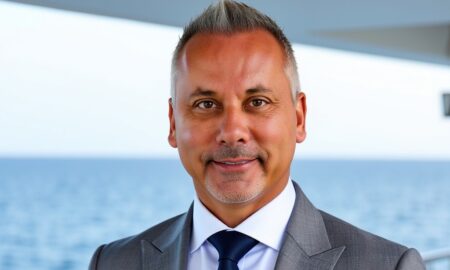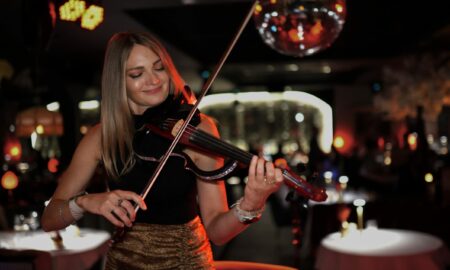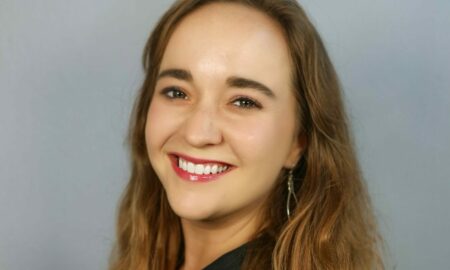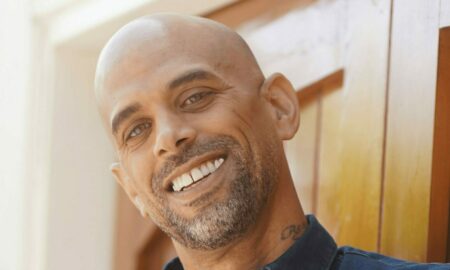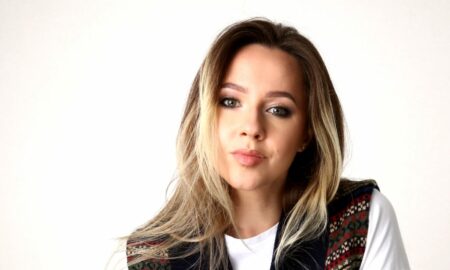

Today we’d like to introduce you to Claudia Narvaez-Meza.
Claudia, please share your story with us. How did you get to where you are today?
When I was a child, I was told I was named after a woman known for her courage in speaking out against unjust punishment. The biblical Claudia, my namesake, defended the radical Jesus of Nazareth in defiance of her husband Pontius Pilate.
I was born in Nicaragua, the motherland of revolutionary poets who mobilized a movement that would topple a ruthless dictator. My family had fled to the United States before the height of the Sandinista takeover and landed wearily in Brooklyn, where we would learn the joys and perils of the “American Dream.” As a child whose first tongue and nation was considered foreign on the streets of Williamsburg, I felt as if I lived between two worlds – an experience common to many immigrant families. Before I learned to be a child, I had to learn the fluencies of survival by interpreting not just for my mother, but for neighbors and community members who did not know the English language or the American system.
I intentionally chose poetry as my first graduate degree because of the heritage and lineage that hums in my bones. My second graduate degree was in social work at a prestigious institution where I learned to master a new language, one of deciphering symptoms and interpreting behaviors of the mind and spirit. As a social worker and clinician, I trained alongside Buddhist practitioners at the bedsides of the dying, I worked as a forensic evaluator with female mental health patients at Riker’s Island penitentiary, and I served as a trauma therapist and advocate for severely abused children living in foster care. On my path to becoming a healer, I’ve learned that the worlds I had to navigate as a child would later inform my passion to serve others with the utmost respect and integrity they deserve.
Great, so let’s dig a little deeper into the story – has it been an easy path overall and if not, what were the challenges you’ve had to overcome?
Yes and no. My experience of diversity and adversity have granted me an intimate knowing of hardship, struggle and loss. Because of this, I find that I am more connected, attuned and empathic.
The challenge is burnout. The solution is self-care. While I promote it, I must remember to make it a priority for myself. This kind of work often isolates and dismantles the underpinnings of self-efficacy. I can only serve others well when I am well. I’ve made it a part of my routine to mediate, pray, tickle my children, have date nights with my wife, go camping and live outdoors, or try something new.
Please tell us about CNM Therapy.
I am a bilingual Spanish speaking psychotherapist in private practice and I have over ten years of experience working with individuals of all ages, couples and families. I specialize in trauma and family systems and my approach to treatment is spiritually informed.
The origins of my training have been primarily academic, and therefore evidence-based. But from the onset of engaging with my clients, I realized that what is perceived by the mind and held by the heart often contradicts the “science” of healing. I am Nicaraguan, I am queer, I am a mother and a wife – none of these identities supersede the other in importance. These are the locations from which some of my best attunement, insights and offerings spring from. It is also the first round of engagement with my clients. I must begin in earnest and in full transparency of not just my credentials and depth of expertise, but also the life experiences that have impacted my role as healer. My approaches stem from my training at the Ackerman Institute of the Family under the mentorship of Dr. Thandiwe Dee Watts-Jones, PsyD and her research on establishing dialogues on intersectionality in the therapy process.
The traditional role of the therapist is often seen and upheld by many in my profession as remaining mysterious and inscrutable – the only window into the healer is their credential hanging on the wall. I have often experienced that my clients identify readily with some of the locations that I share of myself. Creating this connection helps groom and curate a space of trust, rapport and commonality even across difference. I believe that by sharing a little of myself, so much more becomes possible with my client as we begin to build our therapeutic alliance.
Do you look back particularly fondly on any memories from childhood?
I was raised by a single mother in Brooklyn, NY. We lived in low income housing with my two siblings and many cats throughout our time there. Before my chin could reach her table, the morsels and the aromas of my mother’s culinary mastery would be how she would prepare me for the gravity and the emancipation of the work I would come to do. No matter where my footfalls took me, I knew I could always return to the giving hearth of my mother, where there was always a plate of food quietly left on the cooling stove.
Contact Info:
- Website: www.cnmtherapy.com
- Phone: (213) 545-1938
- Email: [email protected]





Image Credit:
Krystal Banzon
Suggest a story: VoyageLA is built on recommendations from the community; it’s how we uncover hidden gems, so if you or someone you know deserves recognition please let us know here.













